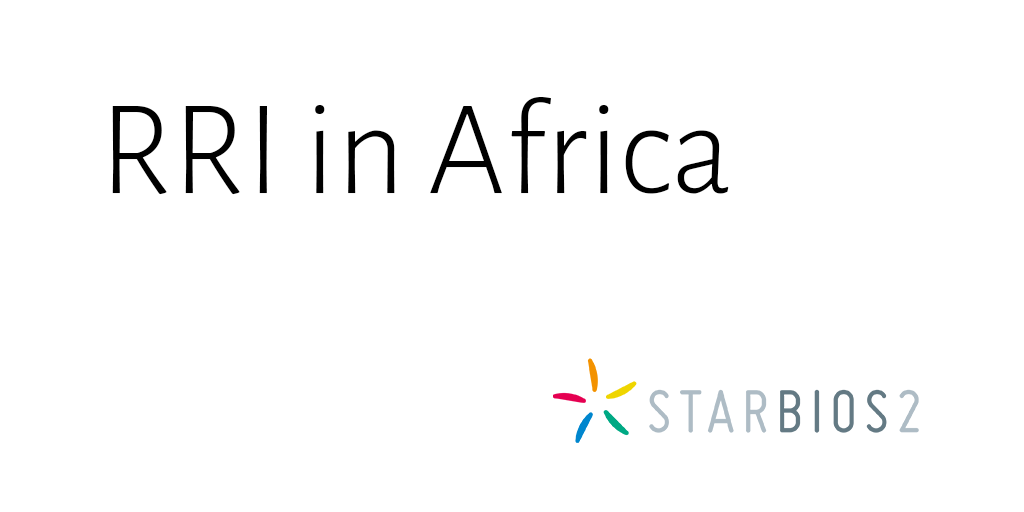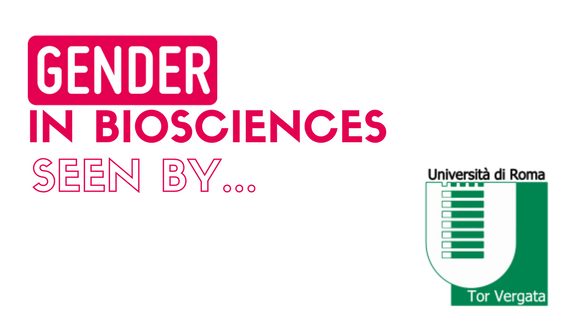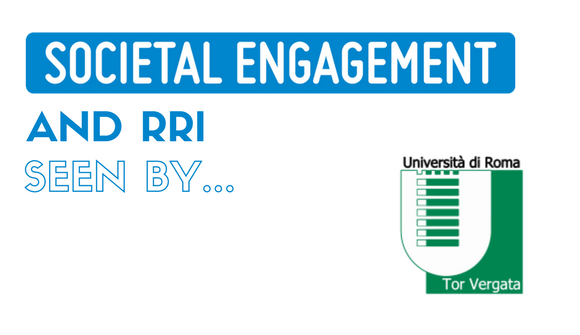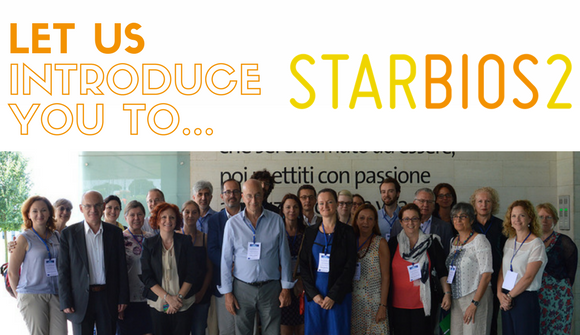Is there a place for responsible research and innovation in African research institutions? With STARBIOS2 experiences in mind, the team at University of Rome Tor Vergata organised the workshop “RRI in Africa: Challenges and perspectives” to find out. To achieve the United Nations’ Millennium Developmental Goals, we need responsible research and innovation (RRI). But how do we implement RRI in African bioscience research institutions? At the RRI in Africa workshop, STARBIOS2 gained insights from the experiences of STARBIOS2 members, research and innovation collaboration projects between Italy and Africa, and African students. Among the around 80 participants were professors and PhD students in Europe and Africa, STARBIOS2 members, rectors of the Somali National University and Evangelic University of Cameroon, representatives of Italian universities (Camerino, Modena, Rome La Sapienza, Rome Tor Vergata, Padua, Parma, Pavia and others) and research institutions (CNR), and UNESCO. Focusing on RRI implementation in biosciences, some topics of discussion were the RRI approach, the specificity of RRI in Africa, experiences from higher education in Cameroon and Italy, student mobility, and scientific projects of Africa PhD students enrolled in Italian universities. The discussions resulted in some theories on how to best develop a plan for RRI implementation in African research institutions, and the conclusion that there may be a need to re-think the European strategy for RRI in the African context. Daniele Mezzana
Gender in Biosciences, seen by the University of Tor Vergata, Italy
Elena Bachiddu – Member of the Department of Biology at the University of Rome “Tor Vergata”. She works in communication, event organization and on the website of the Department. She is a cultural anthropologist and teaches ‘Health and Safety at Work’ for “Didactics of Science” courses, the theoretical-practical modules annually organized by the Department to promote and disseminate scientific knowledge among students of first and second grade schools. Elena Bachiddu is also a member of the Central Advocacy and Control Committee (CUG-Comitato Unico di Garanzia), where she coordinated Work-Life Balance seminars and publications. 1. How do you understand “Gender” in biosciences research? Broadly based and explored in the field of Gender Studies theory, the discourse on ‘gender difference’ is emerging nowadays in Italy in the biomedical disciplines where it is understood as closely related to the guidelines of personalized medicine and no longer as limited to the sphere of reproductive health of woman. Consequently, Gender Medicine, starting from research and biomedical experimentation and pre-clinical studies, appears as an area that currently recognizes and examines the sex and the feminine difference. In this sense research and experimentation approaches are oriented within several pharmacological research projects and research institutes, training of medical specializations, hospitalization procedures in the local healthcare facilities and healthcare policies. However, in general terms, we must remember that, according to the Global Gender Gap Report presented at the World Economic Forum, Italy still ranks 50th as for women participation in the labor market and for economic opportunities, and in particular according …
Societal Engagement in Biosciences, seen by the University of Tor Vergata, Italy
University of Tor Vergata – Department of Biology Dr. Carla Montesano – Coordination and teaching for immunology trainincoordination and teaching for immunology training in infectious diseases and innovative technologies applied to the diagnosis and monitoring of infections. Dr. Daniele Mezzana – Key areas of interest: African societies, Relationships between science and society, evaluation of development projects, corporate social responsibility, civil society organizations, rule of law, communication issues, rural development. 1. How do you understand “Public engagement” in biosciences research? Within the framework of “Responsible Research & Innovation” (RRI), public engagement is a crucial key. Such a key is about promoting the engagement of all societal actors in the research and innovation process. This aspect is very important in biosciences: from the economic point of view, this sector is highly research-based (above all after the “molecular revolution” occurred several decades ago), and is characterized by the cooperation between academia, public and private research centers, industry, etc… But the economic, and also political, social, and ethical issues, Biosciences cope with the involvement of many kind of actors besides researchers and industry, such as policy makers, civil society organizations, schools, medias, and others. 2. What are the current standards and actions to achieve better “Public engagement” in your country and in your University? We may recall that the Italian Agency for the Evaluation of Universities and Research Institutions defined as “Public Engagement” in a more specific sense, is not for profit activities carried out by universities having an educational and cultural aim for …
Let us introduce you to STARBIOS2…
Vittorio Colizzi, coordinator of STARBIOS2 project, is Full professor of General Pathology and Immunology, and Director of UNESCO Chair in Biotechnology and Bioethics at University of Rome “Tor Vergata”. He will talk about the aim of the project and the concept of Responsible Research and Innovation (RRI). 1. How would you describe the concept of Responsible Research and Innovation? In short, RRI is an inclusive approach to research and innovation (R&I). It aims to better align both the process and outcomes of R&I with the values, needs and expectations of European society, and to ensure that societal actors work together during the whole research and innovation process. 2. Why is RRI important for the advancement of the research? Research and innovation have never been carried out in isolation from the social, political and economic context. But the RRI helps us to highlight an important fact: one of the main risk, for European research is its inadequate connection with society. The loose connection between research and society could make European research unable to address the key development problems, unable to exploit its potential for innovation and competitiveness in the global market, and socially isolated or contested (see the case of the attitude of many citizens towards the vaccinations). For these reasons, RRI is important, because it focuses on the subject of a stronger R&I, and even more relevant with respect to society; a society of which R&I itself is an integral part. 3. Could you describe the 5 key issues …







